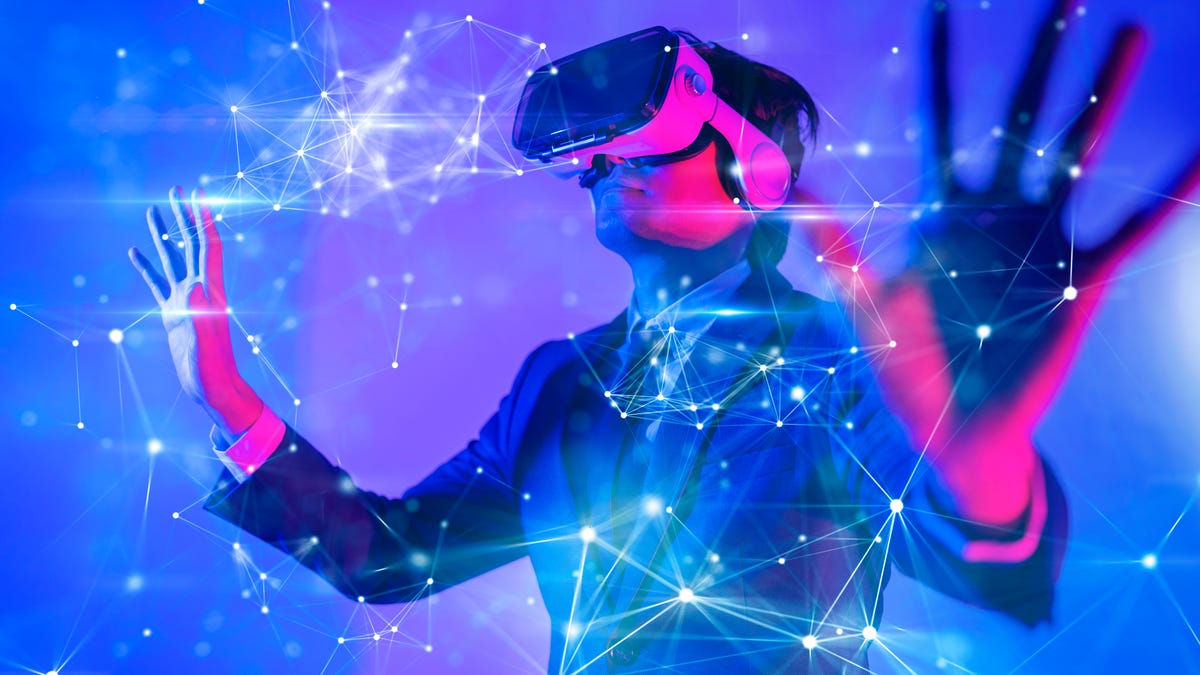 |
| source: google |
In today's rapidly advancing technological landscape, the concept of the Metaverse has emerged as a fascinating and transformative vision for the future. The Metaverse represents a digital universe where people can interact, explore, and engage with one another in a virtual environment. It offers boundless opportunities for social connections, immersive experiences, and limitless possibilities. This article will delve into the intricacies of the Metaverse, exploring its potential impact on various aspects of our lives, from entertainment and education to business and beyond.
What is the Metaverse?
The Metaverse is an interconnected virtual reality space, a convergence of augmented reality (AR), virtual reality (VR), and the internet. It's a collective virtual shared space where users can navigate and interact with digital representations of themselves, other users, and the surrounding environment. This digital realm is not limited to a single platform or device, but rather encompasses a network of interconnected platforms, worlds, and experiences. It is a vision of a fully immersive and interconnected digital world that mirrors our physical reality.
The Evolution of the Metaverse
The concept of the Metaverse has its roots in science fiction, with early references in novels like "Snow Crash" by Neal Stephenson and "Ready Player One" by Ernest Cline. However, recent advancements in technology have brought us closer to realizing this futuristic vision. Companies like Facebook, Microsoft, and Epic Games are investing heavily in developing the infrastructure and platforms that will form the foundation of the Metaverse.
The Promise of the Metaverse
The Metaverse holds immense promise across various domains. Let's explore some of the areas where the Metaverse is poised to make a significant impact:
1. Entertainment and Gaming
The entertainment industry is at the forefront of embracing the possibilities of the Metaverse. It offers a new frontier for immersive gaming experiences, allowing players to step into virtual worlds and engage with others in unprecedented ways. From virtual reality arcades to massively multiplayer online games (MMOs), the Metaverse provides an avenue for gamers to collaborate, compete, and socialize on a global scale.
2. Education and Learning
In the realm of education, the Metaverse has the potential to revolutionize the way we learn and acquire knowledge. Imagine students attending virtual classrooms, exploring historical events in a lifelike manner, or conducting science experiments in a simulated laboratory. The Metaverse can democratize education by providing access to high-quality resources and enabling collaborative learning experiences across geographical boundaries.
 |
| source: Google |
3. Business and Commerce
The Metaverse offers exciting possibilities for businesses to connect with consumers and create immersive shopping experiences. Virtual storefronts, product demonstrations, and personalized shopping assistants are just a few examples of how the Metaverse can enhance the way we shop. Furthermore, it opens up new avenues for remote work and collaboration, allowing teams to meet and collaborate in virtual environments regardless of their physical locations.
4. Social Interaction and Connectivity
One of the core aspects of the Metaverse is its potential to foster social interaction and connectivity. People can gather, socialize, and form communities in virtual spaces, transcending the limitations of physical proximity. The Metaverse can provide a sense of presence, allowing individuals to connect with others, attend virtual events, and share experiences in a more immersive and meaningful way.
Frequently Asked Questions (FAQs)
Q1: How does the Metaverse differ from virtual reality (VR)?
The Metaverse goes beyond virtual reality (VR) by encompassing a network of interconnected platforms, worlds, and experiences. While VR offers immersive experiences within a simulated environment, the Metaverse aims to create a seamless and interconnected digital universe that spans various platforms and devices.
Q2: Will the Metaverse replace the physical world?
No, the Metaverse is not intended to replace the physical world. Instead, it complements and expands upon our physical reality, offering new possibilities for interaction, entertainment, and collaboration.
Q3: Is the Metaverse accessible to everyone?
Efforts are being made to ensure the accessibility of the Metaverse to a wide range of users. However, accessibility challenges, such as the cost of hardware and internet connectivity, need to be addressed to ensure inclusivity.
Q4: How will the Metaverse impact privacy and security?
As the Metaverse becomes more prevalent, privacy and security concerns will need to be addressed. The collection and use of personal data, virtual asset ownership, and user safety are important considerations that require robust frameworks and regulations.
Q5: Are there any ethical concerns associated with the Metaverse?
The Metaverse raises ethical questions surrounding digital identity, virtual economies, and the potential for addiction. It is crucial to approach these concerns with careful consideration and proactive measures to ensure a safe and ethical digital environment.
Q6: When can we expect the Metaverse to become a reality?
The development of the Metaverse is an ongoing process, and its full realization will take time. However, significant strides are being made by technology companies, and we can expect to see more immersive experiences and interconnected platforms in the coming years.
Conclusion
The Metaverse represents a paradigm shift in how we interact with digital spaces and each other. It holds the potential to redefine entertainment, education, business, and social interactions. As the Metaverse continues to evolve, it is crucial to strike a balance between innovation and responsible implementation, addressing challenges and ensuring inclusivity and user safety. The future of the Metaverse is bright, and it will undoubtedly shape the way we live, work, and play in the digital age.
people also search for
Metaverse technology Virtual reality metaverse Augmented reality metaverse Future of the metaverse Metaverse development Metaverse applications Metaverse gaming Metaverse economy Metaverse experiences Metaverse platforms Metaverse design Metaverse integration Metaverse social interactions Metaverse security Metaverse opportunities Metaverse user experience Metaverse entertainment Metaverse investment Metaverse blockchain Metaverse virtual currencies
Post a Comment